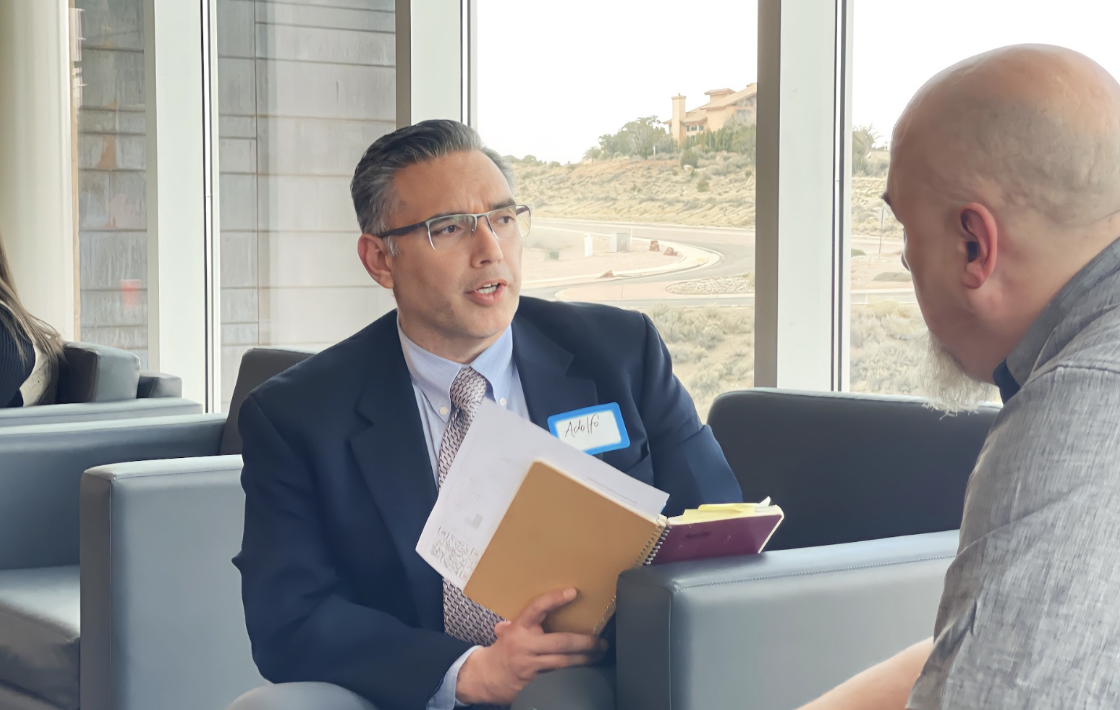New Mexico Gov. Michelle Lujan Grisham killed a bill Friday that would have strengthened Attorney General Raúl Torrez’s authority to protect children’s rights and address racial disparities in how schools discipline children.
The AG’s office defends state agencies accused of wrongdoing, but Torrez had wanted a new Civil Rights Division to investigate abuses by state agencies, school districts and other public bodies. Attorneys general in other states pursue civil rights cases, he noted.
Both chambers of the Legislature listened, passing the bill in the final week of the legislative session. Days before the deadline for acting on legislation, Lujan Grisham expressed mixed feelings about the legislation, saying prosecutors already have tools to investigate neglect and abuse, according to the Albuquerque Journal. On Friday, the governor pocket vetoed the bill, meaning she neither signed nor vetoed it, effectively killing it.
Despite the governor’s inaction, Torrez has indicated he intends to pursue investigations into possible civil rights violations by public agencies whether or not the bill becomes law.
Defending the civil rights of children through “systemic change” at problematic agencies and public bodies is his first priority, Torrez said last year as he prepared to take office. He planned to task the division with investigating racial disparities in how public school children are disciplined, and to scrutinize other possible civil rights violations of children, including cases in which children were sexually assaulted or killed. In recent cases, one child was sexually assaulted while in Children, Youth and Families Department custody and another was killed at home after telling a CYFD investigator he was being sexually molested by his mother’s boyfriend.
The seriousness with which Torres hopes to tackle disparities in school discipline was evident April 1 when his special counsel, Adolfo Mendez, attended a public discussion on the issue in Gallup. Hosted by New Mexico In Depth, ProPublica and the McKinley Community Health Alliance, 70 community members showed up, engaging in a passionate conversation about the Gallup-McKinley school district’s use of school discipline.
New Mexico In Depth and ProPublica reported in December that Native American students are expelled from New Mexico’s public schools far more frequently than other student groups, in large part due to practices at the Gallup-McKinley County Schools district. Gallup-McKinley, which enrolls more Native students than any other public school district in the country, has expelled children at least 10 times as often as the rest of the state in recent years, according to data the district submitted to the state education department. Within the district, Native students were expelled at roughly twice the rate of white students.
Gallup-McKinley Superintendent Mike Hyatt has contested the news outlets’ reporting but a spokesperson for Torrez told the news organizations their findings were alarming.
“Attorney General Torrez has expressed that this is a priority,” Mendez said at the April 1 event.
Mendez said Torrez could investigate racial disparities in student discipline despite a veto. Torrez has said he believes his office already has the implied authority to protect New Mexicans’ civil rights. Having it signed into law would have made it “crystal clear” that Torrez has that authority, without a judge first ruling as much, Mendez said.
By protecting children’s civil rights at school or while they are in CYFD care, the attorney general also hopes to reduce how many children wind up in the criminal justice system, Mendez said.
“We saw young people end up having contact with the criminal justice system,” Mendez said. “Many times it was because other institutions had failed. Services that could or should have been provided, or interventions that were available, were not [provided].”
Later, those same young people sometimes wind up in the criminal justice system, he said.
Going “upstream,” intervening when school districts or other public bodies fail children, and fixing the problems leading to those failures, “secures a different kind of future for them and for our state, for our larger community,” Mendez said.
